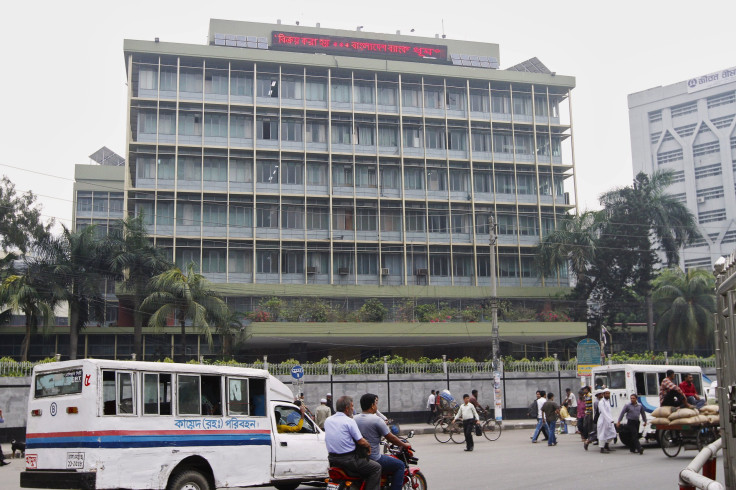Is North Korea Linked To Bangladesh Bank Heist? FBI May Charge Reclusive Nation In Multimillion-Dollar Theft

In one of the largest modern financial capers, February 2016 saw $81 million stolen from the account of Bangladesh's central bank at New York’s Federal Reserve Bank. And the probe into the electronic heist has now reached China and North Korea.
According to sources Wednesday, cited by the Wall Street Journal, U.S. prosecutors are building a case that would target Chinese middlemen who allegedly helped the reclusive East Asian nation organize the theft. These individuals, or businesses, could reportedly face sanctions.
The report follows comments made Tuesday by a National Security Agency official at an event by Aspen Institute. NSA Deputy Director Richard Ledgett hinted that there could be some merit in the claims made by several private security researchers that the cyberattack that targeted Sony Pictures Entertainment in 2014 and the Bangladesh bank heist were linked.
"If that attribution is true, if that linkage from Sony actors to Bangladeshi bank actors is accurate, that means a nation state is robbing banks," Ledgett said, according to Bloomberg. "That is a big deal in my opinion."
In December 2014, the FBI had concluded that North Korea was behind the hack of Sony Pictures. The attack had forced the studio to cancel the release of the satirical movie, “The Interview,” which was based on a plot to assassinate North Korean leader Kim Jong Un.
“The whole security community has said that the attack tools and techniques used in Sony are the same ones used in Bangladesh,” said Eric Chien, an engineer with Symantec Corp., the Journal reported.
Read: $81M Bank Heist Carried Out Through Hacked Computer
To carry out the Bangladesh Bank attack, the hackers used SWIFT, the money transfer network widely used by financial institutions. After gaining access to the SWIFT credentials of the bank, the attackers were able to send messages to the New York Fed requesting the release of funds.
Last Thursday, SWIFT said it was worried about North Korea’s nuclear and missile tests and said that the four remaining banks of the country that were still linked to the network would be discontinued.
"The DPRK (Democratic People's Republic of Korea) banks remaining on the network are no longer compliant with SWIFT's membership criteria," SWIFT said in a statement. "As a result, these entities will no longer have access to the SWIFT financial messaging service. Given the increased ongoing international attention on the DPRK, SWIFT has informed the Belgian and EU authorities.”
The North Korean mission to the United Nations and the Chinese Embassy in Washington did not comment on the matter, the Journal reported. The New York Fed and SWIFT also declined to comment, Reuters reported.
© Copyright IBTimes 2025. All rights reserved.





















